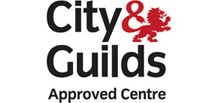

The System of Higher Education
Kinds of universities
Czech higher education institutions are divided into 2 types: universities which offer all forms of educational programmes (Bachelor’s degree, Master’s degree and Doctorate) and non-university types where you can mainly get a Bachelor’s degree.
Universities implement both accredited educational programmes and programmes for continuing education. All universities do research work, art and creative activities, and take part in creating new learning aids.
In Czech universities the following forms of studies are available:
- Full time tuition – this consists of lectures and seminars. In most universities, lectures are not mandatory, but the student has to know all the taught material during the exam.
- Evening tuition – 10-18 hours a week of learning, in the afternoon or in the evening
- Distance tuition – independent study with consultation sessions, 200-220 academic hours a year
- Correspondence tuition – independent study with the use of modern information technologies and individual consultations
- Combined – combination of full time tuition with one of the above mentioned forms
For foreigners, the best form of study is full–time tuition since it guarantees receiving and prolonging of long–stay visa.
Types of studies
Czech universities offer the following types of studies:
Bachelor’s programmes
Bachelor’s programmes of study are intended to provide the necessary qualifications for working as well as for proceeding to a Master’s program of study. Bachelor’s programmes focus on current knowledge and methods while also including the requisite amount of theoretical knowledge. The standard length of study including practical training is 3-4 years. The study programme must be completed with a final state examination and with the defense of a Bachelor’s thesis. Graduates of Bachelor’s programmes of study are awarded the academic degree of “bakalar”. Private institutions mainly offer bachelor programmes of study.
Master’s programmes of study
Master’s programmes of study are aimed at promoting the acquisition of theoretical knowledge based on current scientific and scholarly knowledge, research and development and to enable students to apply this knowledge and develop their creative abilities. Master’s programmes of study in the area of the fine arts are designed to provide fundamental artistic training and encourage the development of students’ talents. Master’s programmes of study are a continuation of Bachelor’s programmes; the standard length of such a programme is 1-3 years. In the case where a Master’s programme of study does not follow a Bachelor’s programme of study (the so-called long-cycle Master’s study programme), the requirement for enrollment is a complete secondary education certificate. The total length of study typically amounts to 4 to 6 years (as a rule it is 5 years in medicine and veterinary science, and 6 years in pharmacology). The study programme culminates in a final state examination and the defense of a Master’s thesis. The graduate gets a Master’s or Engineer’s degree.
Doctoral programmes of study
It is possible to enroll in a Doctorate programme after getting Master’s degree. The programme is aimed at scientific research and independent creative activity in the area of research and development, or independent theoretical and creative activity in the field of arts. The standard length of study is 3-4 years. It is possible to enroll in this type of study only in higher education institutions of the university type. Doctoral studies are completed with a doctoral state examination and the defense of a doctoral thesis, after which the graduates get a PhD degree.
MBA (Master of Business Administration)
MBA (Master of Business Administration) is the most famous and popular academic Master’s degree program in the the field of business administration. The MBA qualification is usually obtained as a supplement to programmes aimed at acquiring special knowledge and skill in the area of management. MBA studies fall into the following branches: economics and finance, management and marketing, human resource management, business administration, and accounting. The programme is tailored for middle and top level managers who have academic knowledge and no less than 3 years of professional experience.


